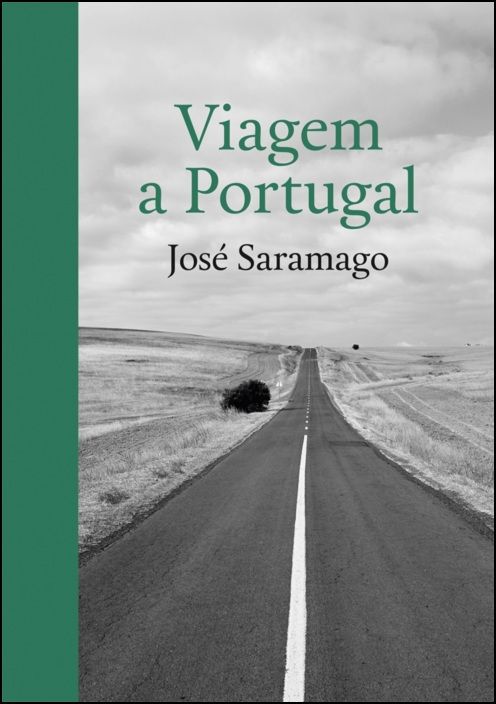Viagem a Portugal Revisited: outra leitura
Já foi dito várias vezes o que parece evidente: o eixo da leitura é uma privilegiada porta de entrada no programa do Centenário de José Saramago. O que talvez pareça menos óbvio é considerar que a chamada “Geografia Saramaguiana” constitui um componente extremamente sugestivo da valorização da leitura e da releitura de Saramago, no contexto do seu Centenário. Vejamos porquê.
Quando começámos a pensar o programa do Centenário, a ideia de um projeto a que hoje chamamos Viagem a Portugal Revisited já existia. Não me foi difícil chegar a uma conclusão: esta nova Viagem a Portugal, deveria ser uma iniciativa central na celebração do Centenário de Saramago. Para isso, tínhamos tudo: um livro admirável, a Viagem a Portugal, como leitura do espaço português (que o foi, antes de ser escrita); a vontade de fazermos chegar essa leitura singular a muita gente, noutra linguagem e em muitos lugares; um parceiro competente, o Turismo de Portugal, parceiro bem consciente do significado deste olhar que o escritor lançou sobre o seu país.
Mas tínhamos mais: uma espécie de legitimação pelo escritor. Eis o que Saramago escreveu no final da sua Viagem a Portugal: “A viagem não acaba nunca. Só os viajantes acabam. E mesmos estes podem prolongar-se em memória, em lembrança, em narrativa.” E nas últimas linhas: “É preciso recomeçar a viagem. Sempre. O viajante volta já.”
Voltamos ao caminho, com a ajuda das ferramentas digitais, com a parceria do Turismo de Portugal e agregando outras vozes e outros olhares de outros escritores. De Portugal, de Espanha e de outros lugares. É disso que se trata, quando falamos de turismo literário e vemos que a literatura aceita refazer a paisagem ou, talvez melhor, quando fazemos da paisagem literatura. E quando viajamos por lugares distantes, por caminhos mal conhecidos, por recantos esquecidos, olhando a gente que os habita e a sua memória.
Como bem se sabe, a viagem é um motivo forte na obra de José Saramago, tal como o são os viajantes que nela se encontram. Viajantes pelo espaço, como na Viagem a Portugal e também n’ A Jangada de Pedra ou na Viagem do Elefante; viajantes pelo tempo (pela História), como no Memorial do Convento, n’O Ano da Morte de Ricardo Reis, na História do Cerco de Lisboa ou n’O Evangelho Segundo Jesus Cristo. Porque viagem e literatura (sobretudo viagem e narrativa) desde sempre têm sido cúmplices. Lembro, a este propósito, um dos poemas mais conhecidos de Fernando Pessoa: “Navegadores antigos tinham uma frase gloriosa: / Navegar é preciso; viver não é preciso”; e como conclusão: “Viver não / É necessário; o que é necessário é criar.”
Corresponder à necessidade de criar, eis o que o site Viagem a Portugal Revisited quer fazer. No seu nome, para além do livro de Saramago, ressoam dois poemas famosos de Fernando Pessoa/Álvaro de Campos, ambos chamados: “Lisbon revisited”. Assim é. Revisitar Portugal é voltar a olhar, com Saramago como guia que nos desafia: “Tome o leitor as páginas seguintes como desafio e convite.” Duplo convite, porque, como ficou dito, convidamos escritores do nosso tempo a refazer a viagem de Saramago, em diálogo duplo: com o espaço português e com o olhar que Saramago lançou sobre esse espaço. E assim, transformado o espaço pelo escritor (pelos escritores), o resultado final deste projeto será plural e sempre renovado: muitos olhares, diferentes imagens, redescoberta constante.
Por fim, o projeto Viagem a Portugal Revisited representa um impulso para a superação de fronteiras, sendo, além disso, convite à visita e proposta de reinvenção da paisagem. Como Saramago disse, ao começar a sua viagem, quando parou o carro para olhar. Entre Portugal e Espanha, o escritor “assoma ao parapeito naquele exato centímetro por onde passa a invisível linha da fronteira.” Aprendamos: “a invisível linha da fronteira”. Como quem diz: não há fronteira que não possa fazer-se invisível. Ou, talvez, inexistente.
Carlos Reis
Comissário para o Centenário de José Saramago
